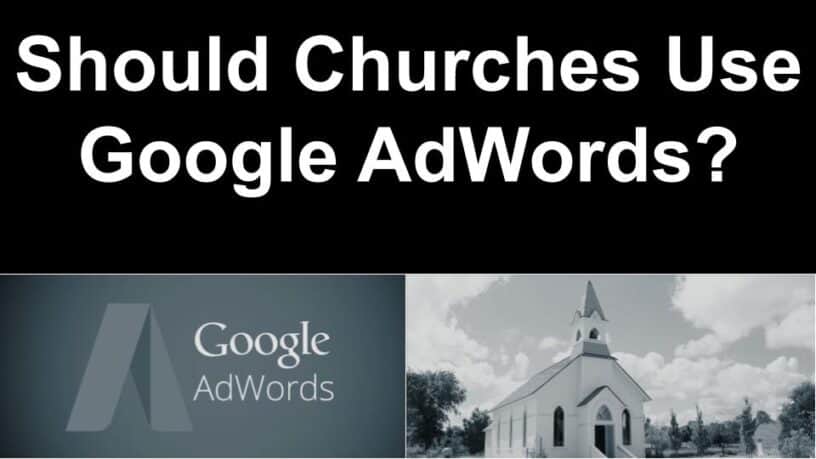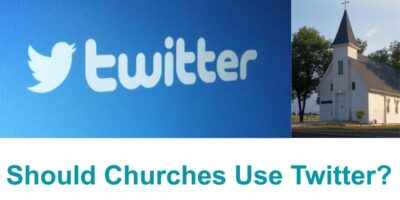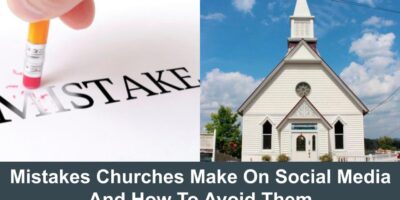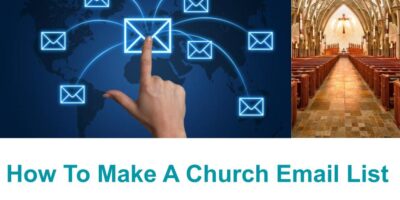As a pastor or leader of your church, you’re always looking for ways to get the word out about your church to increase attendance and get exposure in the community. This post will clarify whether or not a church should use Google AdWords to advertise.
So, should churches use Google AdWords? Yes and No. In general, churches should not use AdWords to advertise for greater attendance if you’re in a rural and low-population area. However, do use AdWords to advertise for attendance in high-population areas like a city or coastal town If the church is located in a rural and low-population area, you can use AdWords to advertise for digital services such as podcasts and newsletters.
Clearly, it’s a simple question with a not-so-simple answer. Let’s take a look at the points to consider for you can to decide if it makes sense – or not – to use AdWords for your church.
When it comes to online ads for a church, location and population matters
Google AdWords is one of the biggest online advertising platforms. Ads on the platform can be seen by millions of people at any given moment. Therefore, it works…but it can be a disaster for your church if not used in the right way for the right reasons. By disaster, I mean a huge waste of time and money.
First, think about why a church would want to advertise in the first place. It typically breaks down into four major categories.
- Increase attendance and regular volunteers for church services.
- Increase exposure for important events such as charity dinners, donation drives, and community outreach cookouts.
- Spread the message. This could be anything from video recordings of the weekly sermon to podcasts published by the pastor to online giving that raises funds for the church’s sponsored missionaries.
- Advertise services the church makes available to the public. These would include daycare, addiction help, and marriage counseling.
For each of the major categories above, AdWords will be more or less effective depending on the targeting.
For category 1, there is a limit to the number of people that reside in a one-hour driving radius from your church (One hour is an arbitrary amount. Set the limit that makes sense for your location.) If the church is centered in a rural location with a medium-to-low population within that one-hour radius, advertising to bring in more attenders will not do much good. Chances are that everyone within that radius is already aware of your church and has already decided they will or will not attend.
However, if the church is centered in a city or high-population area where there are hundreds of thousands of people within that one-hour radius, AdWords could help get the word out (no pun intended) about your church.
For category 2, the number of people in the surrounding area is less of a factor. In short, AdWords might help if you don’t already have a more efficient and less costly method for getting the word out about your special event.
For category 3, consider in this increasingly digital word that your message can be heard much farther away than your church’s four walls. If your church has a website (mandatory for using AdWords) and the church message is regularly recorded in the form of videos of the services or podcasts by the pastor or guest writings from your church’s missionary, those messages can be seen by anyone on the Internet – no matter where they are in the world.
Here’s an example:
I was working with a pastor of a rural church to run AdWords. His church was centered in a fairly rural state, so everyone within driving distance already knew about his church. But the pastor was diligent enough to publish an audio recording of his sermons for the home bound in his community. We posted the audio recordings to the church’s website and ran ads for free sermons. The website almost instantly started receiving a massive increase in traffic from all surrounding states and as far north as Canada. It become a powerful tool to spread the pastor’s message much farther than ever before.
For category 4, consider if your church offers services that benefit the local population, Many churches offer counseling services, addiction services, grief counseling, homeless and needy family assistance, and more. AdWords might be helpful to get the word out about those services to benefit people who don’t attend your church.
Google AdWords is REALLY expensive unless you do this ONE thing
This blog is focused on helping churches and non-profits with their marketing activities, but it’s usually true that churches and non-profits do not have huge marketing budgets. However, that shouldn’t stop you from using every tool available to promote your organization. That’s why Google provides a grant for Non-Profits.
As long as your organization or church is a 501(c)(3) residing in the United States and you have a website, you qualify to get the grant.
The grant comes with an assortment of services that will be covered in another article but the one that applies here is a monthly AdWords budget for up to $10,000. That award doesn’t mean the grant recipient receives money for advertising. It does mean that the grant recipient can create as many ads in AdWords and run them as often as possible for free up to the equivalent of $10,000 per month in ad spend.
There is still cost involved since AdWords needs a website, so you’ll have the monthly cost of hosting and updating your church’s website to maintain eligibility. If your church or non-profit doesn’t have a website, don’t worry. I’ll cover that in another article coming soon. It’s not nearly as expensive or technically complicated as you might think.
Of course, there is a process to acquiring the grant and rules for maintaining it. But if you’re willing to put in the work or partner with somebody who knows the ropes, that’s a LOT of advertising for free. When used correctly, the grant can be a tremendous benefit towards helping your cause.
Speaking of finding a partner…
Seek out a Pro to help with AdWords
Google AdWords can be technically complex to setup and run for maximum benefit. Unless your church or non-profit has a digital marketer in-house, seek the assistance of a professional.
Here are the type of questions to ask a pro when deciding if he or she has the experience you need:
- Does the pro have experience working with churches and non-profits in general?
- Does the pro have experience with the Google Grant for Non-Profits?
- Does the pro know how to create AdWords accounts and run ads? And, what’s the biggest ad spend budget they’ve ever worked with? (remember, you could be working with a $10,000 monthly budget, so you need somebody who has experience with that much to work with.)
- Does the pro understand the language of your organization? When working with churches or any industry, it’s natural there will be some jargon. For example, do they understand what a ‘missionary’ is? It’s helpful to reduce the on-boarding learning curve if you can find a pro that speaks your language.
That’s not at all to say a church member couldn’t volunteer to do the work, but it’s IMPERATIVE you get somebody to set up and run ads for your church that has experience. A rookie mistake could turn into a very costly mistake.
I hope you found this article useful. If you have any comments or questions, please contact me at [email protected] .
Related Questions
Is Facebook Ads better for churches than AdWords? No, all the considerations listed in this article still apply. Location and populations matters, be very careful about your ad spend budget, and seek help from a pro.
Do churches outside the United States qualify for the Google Grant for Non-Profits? Yes, the grant is available to countries outside the United stats – but only in a select group of countries. Visit the following link to see which countries qualify. Link
Do churches need a communications expert on staff? Yes, the entire purpose of the Bible is to provide instruction for living right and spreading the Word. By definition, spreading the Word effectively requires effective communication.




